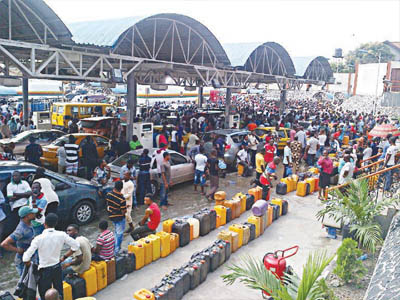There is no doubt that, the Petroleum industry is the major mainstays of a number of developed middle-income and emerging economics around the globe.
Therefore, when a government discoveres oil rederves in its territory, its starts to think strategically on how to manage the fiscal regime and implement a new system of economic policies to manage high revenue.
The advent of oil deregulation dates back to 1973 after the first oil shock which led to a declaine in the economic growth of most developed economics and labour productivity growth.
The policy of deregulation has been adopted by several countries to reduce public sector control for developing a liberalised market while guaranteeing sufficient supply of product.
This is evidence in some countries such as Peru, Argentina, Pakistan, Philippines, Thailand, Mexico, Canada, Venezuela and United State of America. Most of those countries have stylishly disolved their state-owned oil companies through tactical deregulation methods that favours their economy.
In Nigeria, deregulation of the downstream oil sector involve the withdrawal of government control on petroleum products prices and the exclusion of restriction on the establishement and operations such as refining jetties and depots.
As at December 2021, the Nigerian National Petroluem Corporation reported that Nigerian consumed between 55 million litres of petroleum product and an average of N36.59 billion spent on subsidy within 30 days.
This huge amount of money could be diverted to develop other sectors of the economy. This makes deregulation of the downstream oil sector a veritable option for the country towards enhancing economic development.
We are all aware that an increase in fuel pump price impacted negatively on Gross Demostic Product (GDP) growth while fuel pump price declines boost growth in GDP.
Non-deregulation of the Nigeria downstream oil sector could bring about inflation that does not favour workers income. This, in effect, limits the ability to save and thus, leads to little to no incentive for saving.
The Nigerian government has initiated varying strategies to turnaround the oil sector for economic growth. However, they ended up increasing the price of Petroluem products without considering its impact on the consumers and the economy of the country as a whole.
In spite of subsidy reduction reduction at some points and resultant increase in price of petroleum products, supply of the commodity is yet to sufficiently meet demand of the Nigerians.
However, the full deregulation of the downstream oil sector embarked upon by the current administration of President Muhammadu Buhari, is expected to address these issue.
This will probably boost the country's refining capacity, improve supply,stop the importation of refined petroleum products as well as bring to an end the problem of long queue experienced often and often.

This article is informative and educative, Nigerians have been put in cage due to frequent scarcity of petroleum product, man hour lost on queue, it affect price of food stuff in the market, no one is showing concern, how long will we continue with this?
ReplyDeleteIt is high time government remove subsidy and allow market forces to determine the price of the commodity.
Thank you
Exactly sir.
DeleteThank you
The federal Government should and must find a lasting solution to the challenges facing the sector.
ReplyDeleteHowever, whatever side we look at it, the government must ensure that the refineries are up and running.
If a single business man (Dangote) can built a refinery, then what stop FG to do the same
DeleteFederal Government need to work more on this sector
ReplyDeleteYes, because this sector is critical and is the back born of the economy and also tied directly to the masses, whatever affect this sector affect all other sectors
Delete